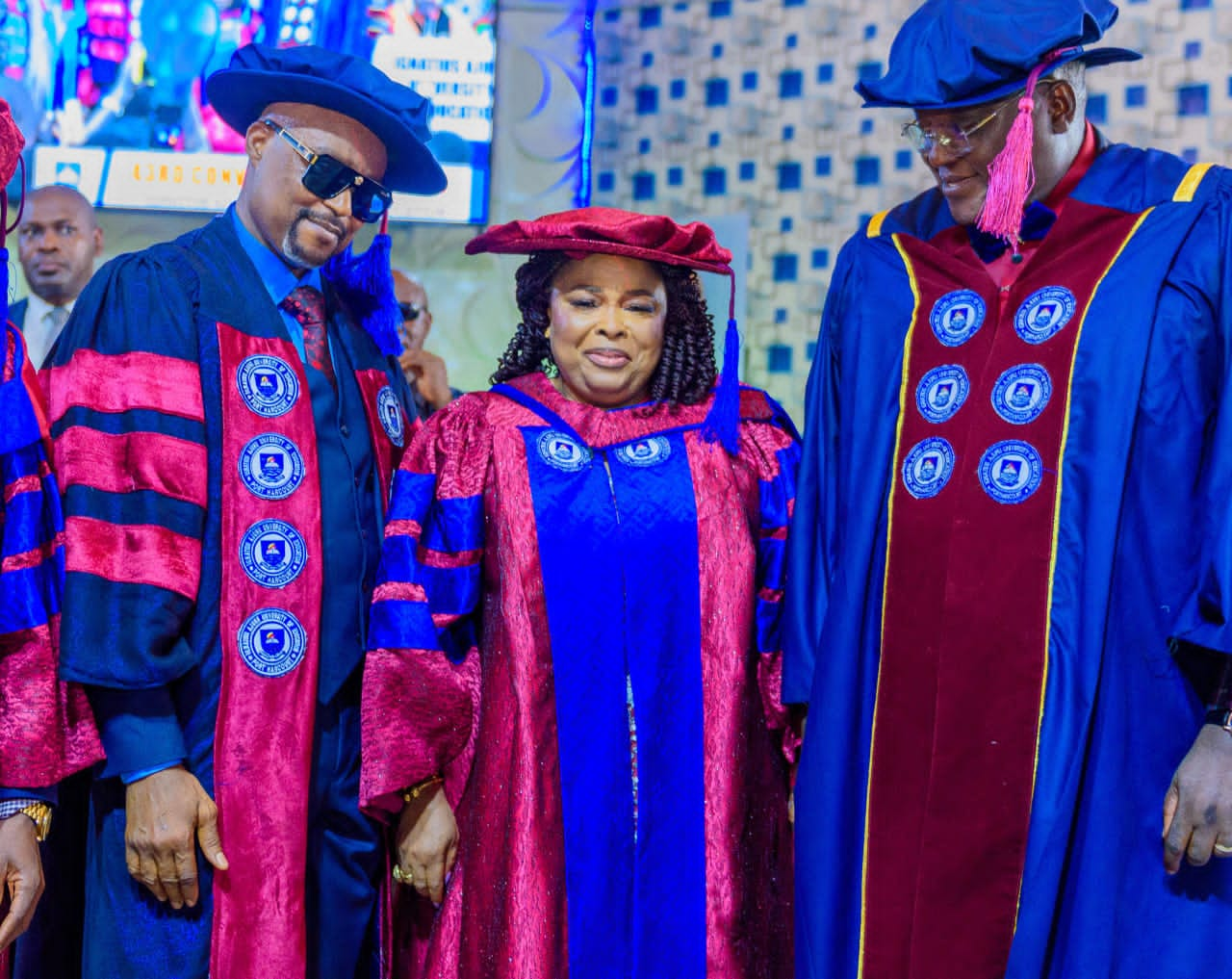Education
Dons Defend 6-3-3-4 System
Two university teachers last Friday in Lagos faulted the proposition for the scrapping of the 6-3-3-4 education policy in the country.
The policy, according to the dons, should be strengthened to enable it to achieve its set objectives.
Dr Soji Oni of the Department of Education Foundation, University of Lagos, who lauded the system, noted that it had been bedeviled by poor implementation.
The Minister of State for Education, Mr Kenneth Gbagi had at a forum in Abuja announced that the Federal Government was considering scrapping the system.
He said plans were at an advanced stage to revert to the 6-5-4 system as an alternative in a bid to reduce the number of years spent by secondary school students by one year. It would be recalled that the system was introduced in 1989 by the late Minister of Education, Prof. Babatunde Fafunwa.
But Oni told our correspondent that because of the poor implementation of the system, it had failed to realise its objectives.
“There is a problem with the 6-3-3-4 system – the problem is implementation – just like with other policies of successive governments.
“The policy was designed to promote science and technology education as well as self-reliance in students.
“How do you expect such a beautiful policy to work without continuous training for teachers – the implementers?
“There is also need for the right infrastructure, such as workshops and laboratories in schools,” he said.
Oni expressed regrets that in spite of the potentialities of the policy in making Nigeria a technology power-house, the ideals and objectives had been jettisoned.
Dr Sule Sheidu of the Education Administration Department, UNILAG, noted that the policy had not made much impact because “the right people to drive it were not saddled with the responsibility”.
He suggested that the government should inject more funds into the system to provide the necessary facilities for its more effective implementation.
“The policy is not working because the wrong people are given the mandate to drive it.
“For as long as we entrust decision making on issues as important as education into the hands of politicians and not educationists, it will not work,” Sheidu said.
He added: “The government needs to get the right people to implement the system and provide the necessary funds and facilities to give the policy some life.”
Education
‘Our Target Is To Go Beyond Academic Accomplishments’

The Acting Vice Chancellor of Ignatius Ajuru University of Education, Port Harcourt, Prof. Okechuku Onuchuku, emphasised the need for students to go beyond academic achievements during the university’s 43rd Convocation ceremony.
The theme, “The University Culture In Practice, The IAUE Experience,” highlights the importance of embracing cherished traditions and intellectual values that define great universities.
Prof. Onuchuku encouraged the new graduates to work hard and persevere, noting that their convocation marks a new beginning in their careers and personal lives. He emphasised that they must prove themselves worthy of the certificates and prizes they have received.
According to him, out of 2,887 first-degree graduands, four made First Class, 403 secured Second Class Upper, 2,030 got Second Class Lower, and 450 graduated with Third Class. Additionally, 1,492 postgraduate students graduated, including 306 PhD holders.
The Sole Administrator of Rivers State, Vice Admiral Ibok-Ete Ekwe Ibas (Rtd), praised the university’s commitment to academic excellence and institutional maturity. He commended the Acting Vice Chancellor for achieving full accreditation for 47 academic programmes and implementing the NUC’s Core Curriculum Minimum Academic Standards.
The administrator urged the new graduates to uphold the positive values instilled in them by the university and strive for continuous knowledge and improvement.
By: King Onunwor
Education
Niger Delta Students Suspend Protest Against NDDC In PH

The Niger Delta Students Union Government, Rivers State Chapter (NIDSUG), has suspended its planned protest against the Niger Delta Development Commission (NDDC) state office in Port Harcourt. The suspension followed an intervention by the state Commissioner of Police, CP Olugbenga Adepoju.
The students had planned to protest on Thursday, citing alleged neglect by the NDDC, particularly in welfare and capacity-building programmes for students from the state. However, after the police intervention, the students agreed to participate in a roundtable discussion with the commission to address their concerns.
NIDSUG leader, Comrade Loveday Njoku, expressed dissatisfaction with the commission’s alleged exclusion of students from benefiting from its programmes. He presented a seven-point demand, including the reintroduction of scholarships for undergraduate and postgraduate students. Njoku emphasised that education is crucial for community development and urged the commission to invest in the future leaders of the state.
The students warned that if their demands are not met, they will resume the protest and occupy the state commission office until their demands are addressed. Despite previous attempts to reach out to the commission’s management team, the students claimed their efforts were unsuccessful.
By: Akujobi Amadi
Education
Administrator Inspects School

As part of efforts to improve the welfare and overall quality of education for students in Obio/Akpor Local Government Area, the Sole Administrator, Sir (Dr.) Clifford Ndu Walter DSSRS, FCAI, JP, paid an unscheduled visit to Universal Primary School, Rumukwurusi.
During the visit, Sir Walter expressed deep concern over the deplorable state of the school and its surrounding environment. He reaffirmed his administration’s commitment to the development of the education sector, stressing its critical role in nation-building.
“I have visited the primary school in Ogbogoro, and now I’m here at the Universal Primary School, Rumukwurusi. I am not satisfied with what I’ve seen,” he stated, indicating that more surprise visits to schools would follow.
To address the issues, the Sole Administrator directed the Council Engineer to commence process for rehabilitation of the school.
The visit was part of a broader initiative aimed at conducting on-the-spot assessments of educational facilities to determine the level of intervention required by the local government council.
Dr. Walter also assured the teachers of his unwavering commitment to revamp the school and improve the learning environment for both staff and students.

